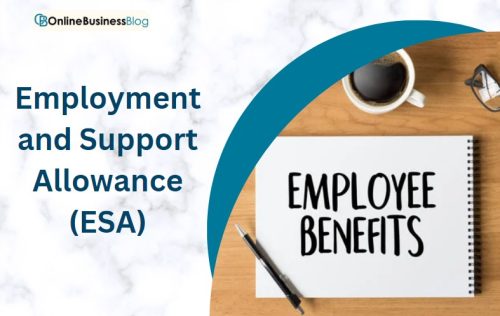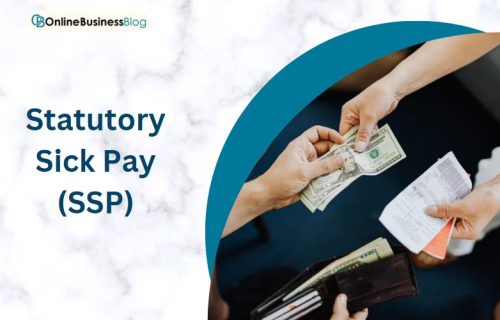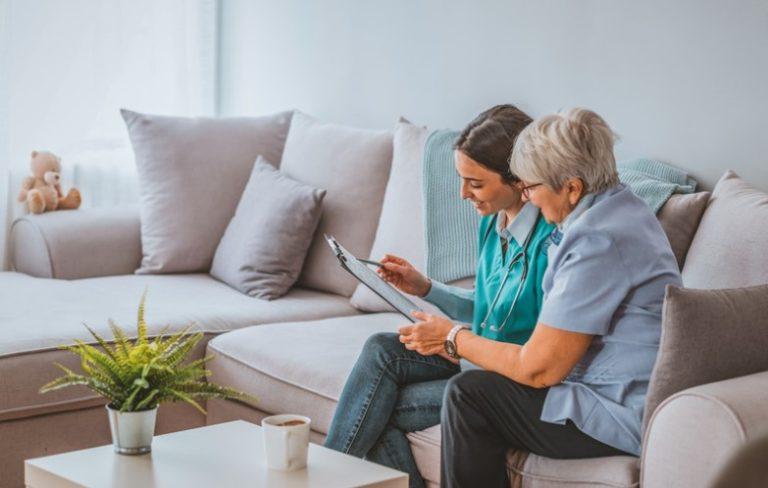Post Contents
Are you or a loved one currently residing in a care home and self-funding your stay? While it may seem overwhelming to navigate the complexities of funding your own care, there are actually several benefits available to help alleviate the financial burden. In this blog post, we will explore the various benefits that you can claim if you find yourself in this situation. From Employment and Support Allowance to Personal Independence Payment, we’ve got you covered! So let’s dive in and discover how these benefits can provide some much-needed support during your time in a care home.
What Benefits Can You Claim if You Are in a Care Home and Self-funding in the UK?
Employment and Support Allowance (ESA)

One of the benefits you may be eligible for if you are in a care home and self-funding is Employment and Support Allowance (ESA). This benefit is designed to provide financial support for individuals who are unable to work due to illness or disability.
To qualify for ESA, you will need to undergo a Work Capability Assessment, which assesses your ability to perform various tasks. Based on the assessment, you will be placed into one of two groups: the Work-Related Activity Group or the Support Group.
If you are placed in the Work-Related Activity Group, it means that although your capacity for work is limited, there may still be opportunities available with appropriate support. You will receive additional help and guidance in finding suitable employment.
On the other hand, if you are placed in the Support Group, it indicates that your condition severely limits your ability to work. In this case, you will receive a higher rate of ESA and will not be required to actively seek employment.
It’s important to note that ESA can provide valuable financial assistance while residing in a care home. However, eligibility requirements may vary depending on individual circumstances. It’s advisable to consult with an expert or contact relevant government agencies for detailed information tailored specifically to your situation.
Industrial Injuries Disablement Benefit (IIDB)
Industrial Injuries Disablement Benefit (IIDB) is financial support provided to individuals who have suffered an injury or illness as a result of their work. This benefit is available for those who are self-funding in care homes. It aims to provide compensation and assistance for the disablement caused by industrial accidents or diseases.
To be eligible for IIDB, you must have been employed at the time of your injury or illness and it should be directly related to your work. The severity of the disablement will determine the amount of benefit you receive. The payment can help cover additional expenses such as medical bills, rehabilitation costs, and other necessary support services.
Applying for IIDB involves providing relevant documentation and evidence of your industrial accident or disease. It’s important to seek professional advice from organizations like Citizens Advice Bureau or Disability Rights UK to ensure that you meet all eligibility requirements and complete the application correctly.
Receiving IIDB can alleviate some financial burdens associated with being in a care home while self-funding. It provides peace of mind knowing that there is financial support available to assist with any additional costs resulting from your industrial injury or illness.
Armed Forces Independence Payment (AFIP)

The Armed Forces Independence Payment (AFIP) is a benefit that provides financial support for those who have been severely injured or disabled as a result of their service in the armed forces. It aims to help individuals maintain their independence and improve their quality of life.
This payment is available to both serving and former members of the armed forces, regardless of whether they are self-funding their care home expenses or receiving funding from other sources. To be eligible for AFIP, individuals must meet certain criteria related to their disability or injury.
AFIP can provide additional financial assistance to cover the costs associated with living in a care home, including accommodation, meals, and personal care. The amount received will depend on individual circumstances and needs.
It’s important to note that AFIP is separate from other benefits such as Personal Independence Payment (PIP) or Disability Living Allowance (DLA). Therefore, if you are already receiving these benefits while in a care home, you may still be eligible for AFIP.
To apply for AFIP, individuals should contact Veterans UK or visit the official government website for more information on eligibility criteria and how to make a claim.
Attendance Allowance
Attendance Allowance is a benefit that can be claimed by individuals who are in a care home and self-funding their care. This allowance is specifically designed to provide financial support to those who need help with their personal care due to a disability or illness.
To be eligible for Attendance Allowance, you must be over the age of 65 and have a physical or mental condition that requires assistance throughout the day. The amount you receive will depend on how much help you need, ranging from lower rates for those who require frequent supervision to higher rates for individuals who need constant attention.
One of the main advantages of Attendance Allowance is that it is not means-tested, meaning your income and savings will not affect your eligibility. This makes it an accessible option for those who may be self-funding their care but still require additional financial assistance.
In addition to providing extra funds, Attendance Allowance can also offer peace of mind knowing that there is support available to cover some of the costs associated with receiving long-term care in a residential facility.
Attendance Allowance can be an invaluable resource for individuals in care homes who are self-funding their care. It helps alleviate some of the financial burden associated with receiving ongoing assistance due to a disability or illness. By providing this support, it ensures that individuals can continue to receive the necessary level of care without worrying about additional expenses.
Statutory Sick Pay (SSP)

Statutory Sick Pay (SSP) is a benefit that can be claimed by individuals who are in a care home and self-funding, but only under certain circumstances. To be eligible for SSP, you must have been employed and earning at least £120 per week before entering the care home.
If you meet the eligibility criteria, SSP provides financial support when you are unable to work due to sickness or disability. It is paid by your employer for up to 28 weeks. The amount of SSP you receive depends on your average weekly earnings.
Claiming SSP while in a care home can help alleviate some of the financial burden associated with being unable to work. It provides a safety net during times of illness or disability, ensuring that individuals can still receive an income while receiving necessary care.
It’s important to note that claiming SSP does not guarantee full coverage of all expenses related to being in a care home. Additional funding may be needed depending on individual circumstances. Therefore, it’s crucial to explore other potential benefits and options available for self-funded individuals in care homes.
Disability Living Allowance (DLA)
Disability Living Allowance (DLA) is a benefit that provides financial support to individuals who have a disability or long-term health condition. It is available to both children and adults who need help with personal care or getting around.
DLA can be particularly beneficial for those in care homes who are self-funding their stay. It can help cover the additional costs associated with their disability, such as mobility aids, specialized equipment, or additional care needs.
To claim DLA while in a care home and self-funding, you will need to meet certain eligibility criteria. This includes having difficulties with daily activities like bathing, dressing, eating, or walking. The severity of your condition and how it affects your ability to function independently will also be considered.
It’s important to note that DLA is gradually being replaced by Personal Independence Payment (PIP) for new claims from adults aged 16-64 years old. However, if you were already receiving DLA before the age of 65, you may continue to receive it even if you move into a care home.
Applying for DLA can sometimes be complex and time-consuming. It involves filling out forms detailing your condition and providing supporting evidence from healthcare professionals. Seeking assistance from organizations specializing in benefits advice can be helpful during this process.
Disability Living Allowance (DLA) is an essential financial support option for individuals residing in care homes while self-funding their stay. By claiming this benefit, they can receive the necessary funds to assist them with their specific disability-related needs and enhance their quality of life within the care home setting without solely relying on personal funding sources.
Pension Credit

Pension Credit is a valuable benefit that individuals in care homes who are self-funding may be eligible for. It provides financial support to those who have reached the qualifying age and have a low income or savings.
One of the main benefits of Pension Credit is that it can help cover the cost of living in a care home, which can often be quite expensive. This means that individuals can receive assistance with their care home fees, ensuring they can access the necessary support without facing significant financial strain.
Additionally, Pension Credit also offers other advantages such as free NHS dental treatment, help with rent or council tax payments, and even Cold Weather Payments during winter months.
Applying for Pension Credit is relatively straightforward and can be done online or over the phone. The amount you receive will depend on your individual circumstances, including factors like your income and savings.
It’s worth noting that claiming Pension Credit does not affect your entitlement to any other pensions you may receive.
If you are self-funding your care homestay and meet the eligibility criteria, applying for Pension Credit could provide crucial financial support to ensure you receive proper care while maintaining a good quality of life.
Basic State Pension and New State Pension
The Basic State Pension and New State Pension are two forms of financial support that individuals in care homes can potentially claim if they are self-funding.
The Basic State Pension is a regular payment from the government that you may be eligible for based on your National Insurance contributions. It provides a basic level of income to help support your living costs.
On the other hand, the New State Pension is a single-tier pension system introduced in 2016. To qualify for this pension, you must have at least ten years of National Insurance contributions.
Both pensions can provide additional financial assistance to those who are self-funding their care home fees. However, it’s important to note that eligibility criteria and payment amounts vary depending on individual circumstances.
To determine whether you’re entitled to these pensions and how much you could receive, it’s advisable to contact the Department for Work and Pensions or seek advice from an independent financial advisor with expertise in social security benefits.
Remember, understanding your entitlements can help alleviate some of the financial burdens associated with self-funded care home arrangements.
Universal Credit (UC)

Universal Credit (UC) is a social security benefit in the UK that provides financial support to individuals who are on a low income or out of work. It is applicable to those who are self-funding their care home expenses as well.
One of the key advantages of UC is its simplicity and flexibility. Unlike other benefits, it combines six different types of benefits into one payment, making it easier for recipients to manage their finances. This includes housing benefits, jobseeker’s allowances, income support, working tax credit, child tax credit, and employment and support allowance.
Another benefit of UC is its online application process. This allows individuals to apply from the comfort of their own homes without needing to visit a Jobcentre. The system also features an online account where users can track their payments and update any changes in circumstances.
Furthermore, UC offers additional financial assistance through various elements such as childcare costs, and limited capability for work-related activity elements for those with disabilities or health conditions that affect their ability to work.
It’s important to note that eligibility criteria and payment amounts may vary depending on individual circumstances and factors such as age, income level, savings/assets owned etc., so it’s advisable to seek professional advice or consult government resources for accurate information.
Universal Credit aims at providing comprehensive support tailored towards individuals’ specific needs while they are self-funding in a care home setting.
Personal Independence Payment (PIP)
Personal Independence Payment (PIP) is a benefit in the UK that provides financial support to individuals who have long-term disabilities or health conditions. It is not means-tested, which means it does not take into account your income or savings. PIP is designed to help cover the extra costs associated with living with a disability or health condition.
To be eligible for PIP, you must be aged between 16 and state pension age, have a long-term disability or health condition that affects your ability to carry out daily activities, and have had difficulties for at least three months (with the expectation of them lasting for at least another nine months).
The amount you can receive through PIP depends on how your condition affects you. There are two components: the daily living component and the mobility component. The daily living component helps with tasks such as cooking, bathing, and managing medications. The mobility component supports those who need help getting around.
Applying for PIP involves completing a detailed application form and may require an assessment by an independent healthcare professional.
Personal Independence Payment can provide essential financial support to individuals in care homes who are self-funding their care but still need assistance due to their disabilities or health conditions.
Bereavement Support Payment (BSP)

Bereavement Support Payment (BSP) is a benefit that provides financial support to those who have experienced the loss of a partner or spouse. It recognizes the emotional and practical challenges that come with bereavement, helping individuals cope during this difficult time.
The BSP is available to people who are in a care home and self-funding their care. This payment can help cover some of the costs associated with funeral expenses, as well as provide ongoing financial support for up to 18 months after the death of your partner or spouse.
It’s important to note that eligibility for BSP depends on various factors, including your age, relationship status at the time of your partner’s or spouse’s death, and whether you were already receiving certain other benefits. The amount you receive will also depend on these factors.
Applying for BSP may require providing documentation such as death certificates and proof of income. It is advisable to seek guidance from relevant authorities or organizations specializing in bereavement support to ensure you meet all necessary requirements when applying.
Bereavement Support Payment can offer valuable financial assistance during what is undoubtedly an emotionally challenging period.
Conclusion
If you are in a care home and self-funding in the UK, there are several benefits that you may be eligible to claim. These benefits can provide financial support and assistance with additional care needs.
The range of benefits available includes Employment and Support Allowance (ESA), Industrial Injuries Disablement Benefit (IIDB), Armed Forces Independence Payment (AFIP), Attendance Allowance, Statutory Sick Pay (SSP), Disability Living Allowance (DLA), Pension Credit, Basic State Pension and New State Pension, Universal Credit (UC), Personal Independence Payment (PIP), and Bereavement Support Payment (BSP).
It is important to assess your eligibility for each benefit based on your individual circumstances. You may need to provide evidence of your care home fees and any other relevant documentation when applying for these benefits.
Remember to stay informed about any changes or updates in the benefits system through official government sources. It’s always a good idea to seek advice from professionals or organizations specializing in social welfare rights if you have any questions or need guidance throughout the process.
FAQs on What Benefits Can You Claim if You Are in a Care Home and Self-funding in the UK?
1. Can you get tax relief on care home costs in the UK?
No, you cannot get tax relief on care home costs in the UK. However, there are some other financial options available to help you pay for care home fees, such as:
- NHS Continuing Healthcare: If your care needs are primarily health-based, you may be eligible for NHS Continuing Healthcare, which is a free service.
- Local authority funding: If your income and savings fall below certain limits, your local authority may be able to help you pay for care home fees.
- Care fee funding plans: There are a number of care fee funding plans available, which can provide you with a guaranteed income to pay for your care costs.
2. Can a care home take all my savings?
No, a care home cannot take all your savings. The amount of money you have to pay towards your care home fees will depend on your income and savings, but you will always be left with a minimum amount of money to live on. This is called the Personal Expenses Allowance, and it is currently £25.65 per week.
If you have more than £23,250 in savings, you may have to pay more towards your care home fees. However, the amount you have to pay will be capped at £86,000 from October 2023. This means that you will never have to pay more than £86,000 in care costs during your lifetime.
It is important to speak to your local authority or a financial advisor to find out more about your options for paying for care home fees.


